Manchester Arena Inquiry: Fire service bomb response was a 'catastrophe'
- Published
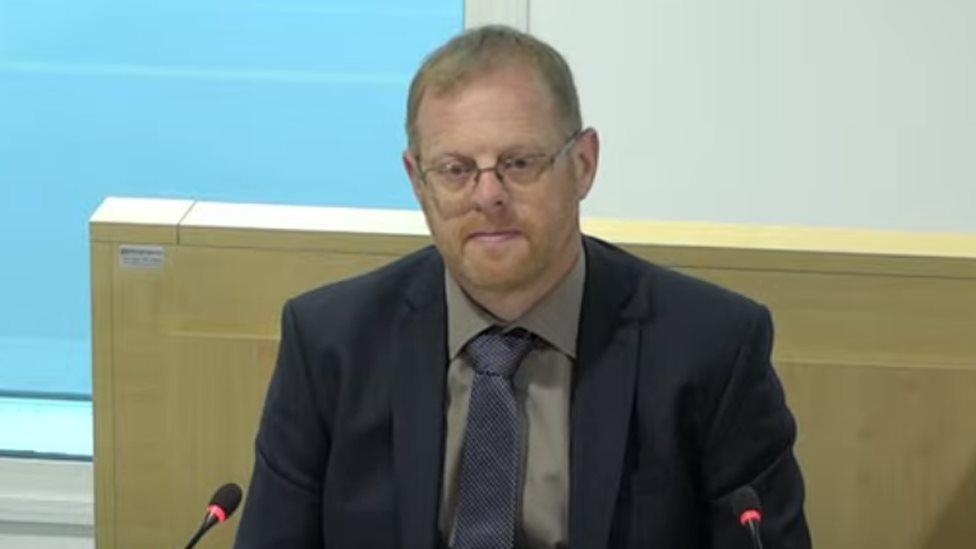
Group manager John Fletcher told the public inquiry he thinks about the attack "every day"
The fire service response after the Manchester Arena attack was a "catastrophe" as senior officers argued over who to deploy, an inquiry heard.
Communication and command failures meant fire crews took more than two hours to get to the arena after the bombing in May 2017.
Fire service group manager John Fletcher told the inquiry the failed response still deeply affected him.
He said he had "never been in such a dark place" by the end of the night.
"I was completely devastated," he said.
"Everything that we put in place for this type of scenario, I thought we had a really good capability and it was just a catastrophe, really."
'Tunnel vision'
Twenty-two people were killed and hundreds more injured in the explosion at the end of an Ariana Grande concert on 22 May 2017.
At the time of the bombing, Mr Fletcher was contingency planning manager at Greater Manchester Fire and Rescue Service (GMFRS).
He was off duty on the night of the attack but quickly became involved in the response, eventually mobilising to the fire service Command Support Suite.
In his inquiry statement, he said: "I think about the arena attack every day. This is something I feel that I'll never get over.
"It's devastating to think that after many years of planning and working with multi-agency partners, that our response should fail in this manner."

Twenty-two people were killed in the May 2017 bombing
The inquiry was told that Mr Fletcher and other fire service colleagues repeatedly tried and failed to get through to the Greater Manchester Police force duty officer to get more information about the incident.
Mr Fletcher admitted with time passing and a lack of information, he should have tried to contact North West Ambulance Service to find out what it knew and how it was responding.
"I focused on the force duty officer, I should have thought about the ambulance service, I have no excuses for that. I think maybe the phrase is tunnel vision," he said.
He said they never expected the police phone lines to be as "swamped as they were".
The inquiry also heard how about two hours after the explosion, senior officers including Mr Fletcher argued with chief fire officer Peter O'Reilly about what resources should be sent to the arena.
They wanted to deploy specialist crews trained to respond to terrorist attacks but Mr O'Reilly refused, deciding to send just 15 regular firefighters.
The hearing was told they had been requested by an ambulance commander at the scene.
In his statement to the inquiry, Mr Fletcher said Mr O'Reilly had got angry and mistakenly thought all firefighters were "trauma technicians" with more advanced medical training.
Mr Fletcher, who has now retired from GMFRS, admitted that none of the senior officers in the room challenged the chief officer, despite him being incorrect.
He agreed with the inquiry chair, Sir John Saunders, that the atmosphere in the Command Support Suite was "not conducive to making the right decisions".
Mr Fletcher told the hearing there was a "plethora of reasons" why the fire response failed but he believed there was one overriding factor, adding: "I think communication is probably the biggest failure, certainly in the early stages of the incident."
The inquiry continues.

Why not follow BBC North West on Facebook, external, Twitter, external and Instagram, external? You can also send story ideas to northwest.newsonline@bbc.co.uk
Related topics
- Published5 July 2021
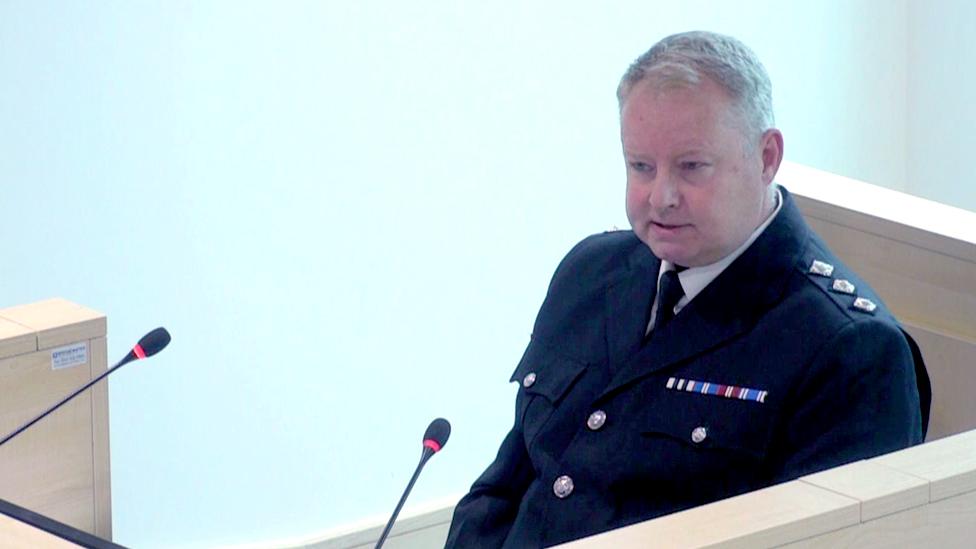
- Published30 June 2021
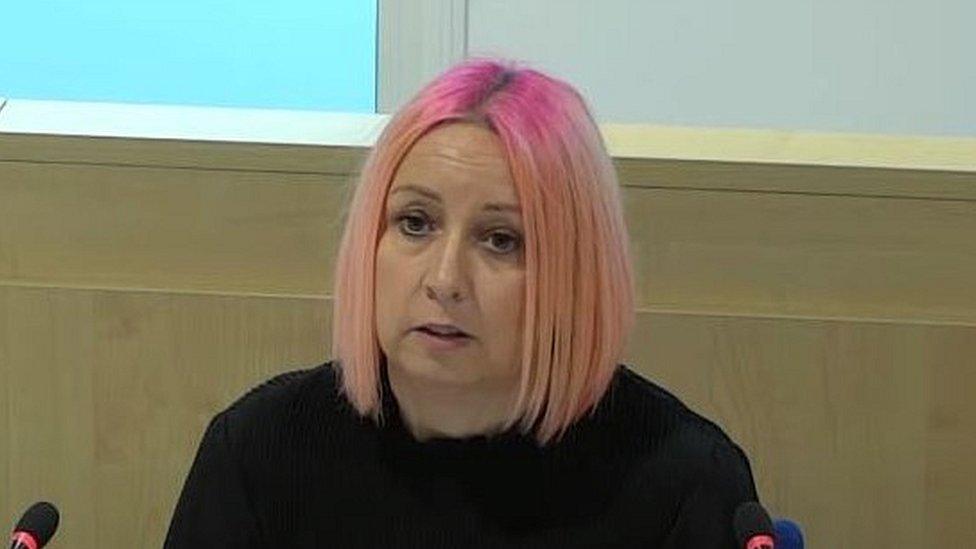
- Published29 June 2021
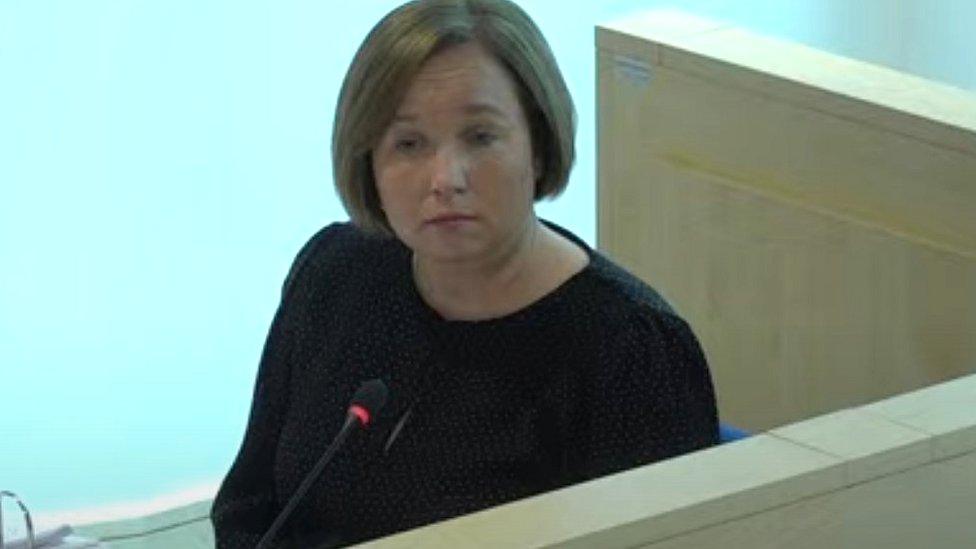
- Published28 June 2021
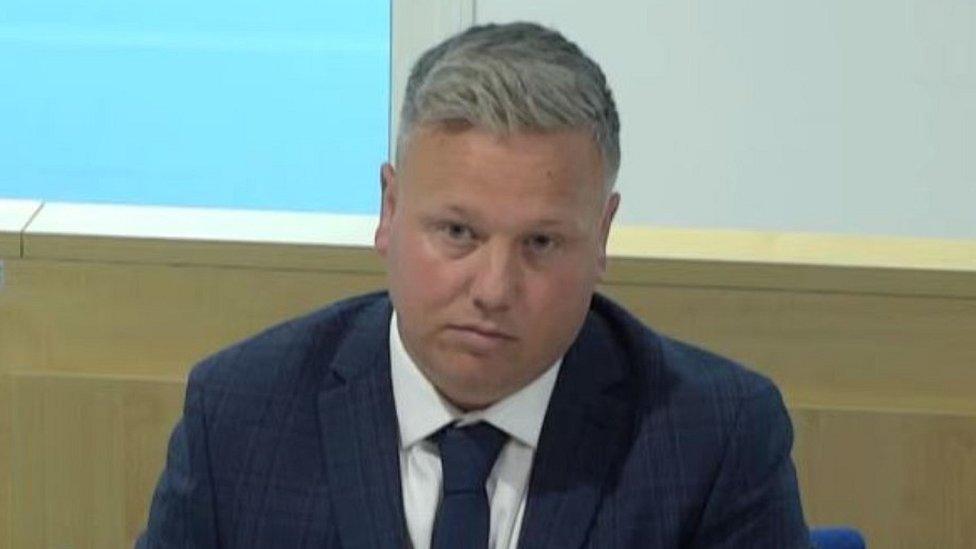
- Published24 June 2021
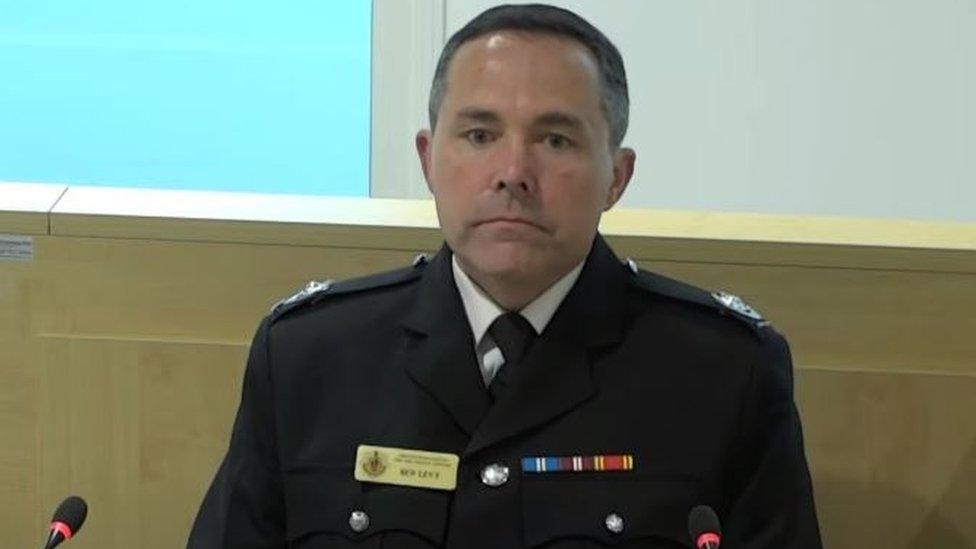
- Published23 June 2021
